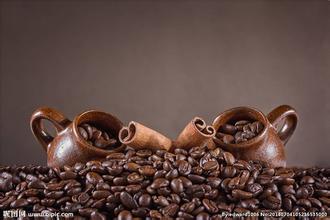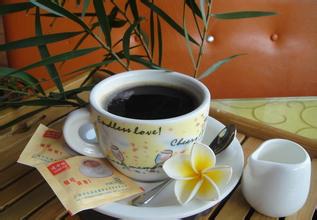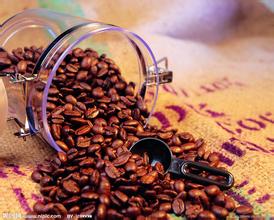Rwanda Coffee Flavor and Taste Manor characteristics of Malaba Coffee Coffee Chimeier Manor
Angola Angola
Used to be a big coffee producer, but now its future is uncertain
In the mid-1970s, Angola (Angola) exported 3.5 million bags of coffee a year, 98 per cent of which was Robbins (probably the best in Africa), but total production fell to 200000 bags in 1990.
The best brands in Angola used to be Ambriz, Amborm and Novo Redondo, all of which are known for their consistent quality. Most of Angola's coffee is exported to the United States, the Netherlands, and of course, the tiny Highland beans, which have always been popular in Portugal, and the 2005 Columbia Q Competition winner Manor are all run by this private company, and this batch of coffee grades printed with SICAF are also run by NKG. Rwanda's coffee grading system is different from other African countries, and the difference in hand selection needs to be assessed by cup test. According to the experience of purchasing, Lu will be one of the favorites of another wave of coffee lovers: thick Body, acidity of fruit, complex and changeable dry aroma in the mouth: deep chocolate, hazelnut (nutty), fruit with persistent, peach aroma.
Wet fragrance: Woody, creamy, nutty, pepper, mango sweetness
Sipping: melon-like sweetness is coated. The acidity is bright and obvious, with slightly astringent in front. The creamy body and the black tea-like aroma continue to be strong and solid. Rwandans have grown coffee since colonial times, but until 1999, its products were still classified as below Class C and in the global market.
No one cares about it. The reason for the poor quality is that farmers do not have a fixed procedure for washing coffee beans and do not process coffee fruits according to specifications in time. Buyers buy coffee beans at $0.33 per kilogram, and farmers maintain food and clothing on meagre profits earned at low prices, but they are still in a state of poverty.
In 1999, 220 coffee growers formed guilds in the Malaba area (formerly part of Butare province) to address the disease. Among the guild members, many farmers were separated from their loved ones by the 1994 mass massacre, while some husbands were jailed or were taken to the traditional Gacaca Court (gacaca) to face trial on charges of participating in the massacre. They named the guild "Abau Zam Gambi" (Abahuzamugambi), which means "people who work together to achieve their goals" in Rwandan. Farmers hope that by setting up this association, they will be able to work directly with Geely's exporters instead of peeling layers of skin through intermediary transportation companies, so as to increase profits. Farmers distribute their profits and spend them on tools, fertilizers and seeds to increase production

Important Notice :
前街咖啡 FrontStreet Coffee has moved to new addredd:
FrontStreet Coffee Address: 315,Donghua East Road,GuangZhou
Tel:020 38364473
- Prev

El Salvador Coffee Manor Flavor and Taste area introduction to El Salvador Coffee Bean Renas Manor
Salvadoran coffee: with sour, bitter, sweet and other taste characteristics, the best roasting degree is moderate, deep Salvadoran boutique coffee is concentrated in the western Santa Ana and northwest Charantan fruit volcanic rock producing areas. In recent years, the top 10 cup tests are almost all from these two producing areas, with an altitude of about 9-1500 meters, mainly bourbon (68%), followed by Pacas (29%).
- Next

The Taste of Tanzanian Coffee with irritating Flavor introduction to Arusha Coffee in Manor
Tanzanian coffee has the excellent pedigree of the Middle Eastern non-washed bean family, bright acidity, rich and irritating flavor. There is no doubt that Kenyan coffee takes the lead in this family, but Tanzania has many advantages that are very similar to those of Kenya. Round beans are often specially selected and expensive, but sometimes they get moldy.
Related
- Does Rose Summer choose Blue, Green or Red? Detailed explanation of Rose Summer Coffee plots and Classification in Panamanian Jade Manor
- What is the difference between the origin, producing area, processing plant, cooperative and manor of coffee beans?
- How fine does the espresso powder fit? how to grind the espresso?
- Sca coffee roasting degree color card coffee roasting degree 8 roasting color values what do you mean?
- The practice of lattes: how to make lattes at home
- Introduction to Indonesian Fine Coffee beans-- Java Coffee producing area of Indonesian Arabica Coffee
- How much will the flavor of light and medium roasted rose summer be expressed? What baking level is rose summer suitable for?
- Introduction to the characteristics of washing, sun-drying or wet-planing coffee commonly used in Mantenin, Indonesia
- Price characteristics of Arabica Coffee Bean Starbucks introduction to Manning Coffee Bean Taste producing area Variety Manor
- What is the authentic Yega flavor? What are the flavor characteristics of the really excellent Yejasuffi coffee beans?

